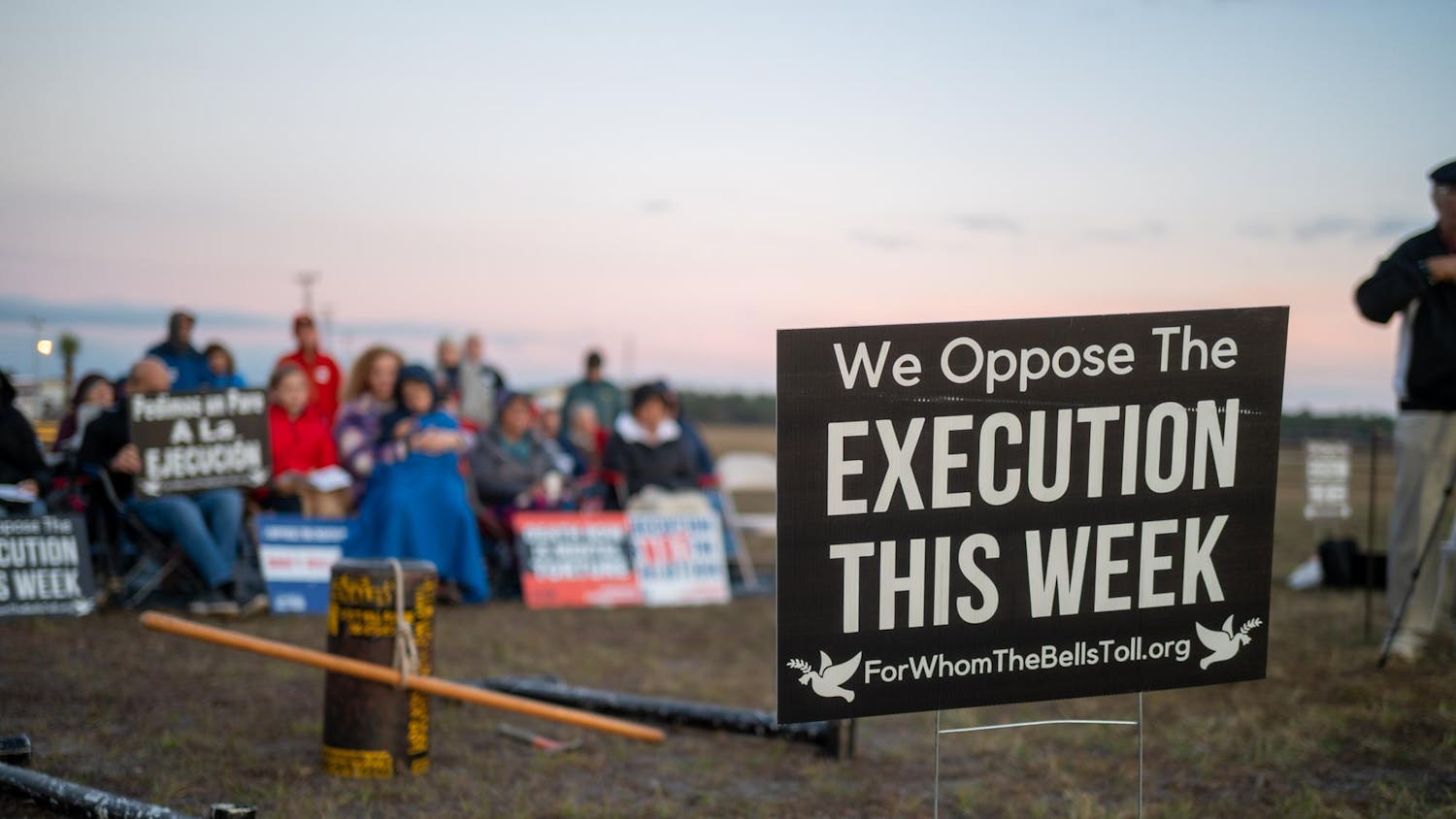Two men arrested for murder in Alachua County are currently on death row, but Tuesday’s Supreme Court ruling offers a slim chance to appeal.
The 8-1 ruling stated that Florida’s current system violates the right to a trial by jury afforded by the Sixth Amendment. The system gives the judge — not the jury — the final say in the sentencing process.
Danny Rolling, often referred to as the Gainesville Ripper, was executed in 2006, making him the last person from Alachua County to face the death sentence.
The Supreme Court ruling may affect the fate of Florida’s nearly 400 death-row inmates, but some legal experts said it would likely only affect inmates who have yet to use all of their initial appeals.
John Stinneford, a UF law professor, said some inmates will likely file motions asking for a new hearing.
“They would have a jury that would hear all the evidence and make a decision beyond a reasonable doubt,” he said.
In its decision, the Supreme Court sided with Timothy Lee Hurst, who was convicted in the 1998 murder of his co-worker at a Popeyes Louisiana Kitchen restaurant in Pensacola.
A jury ruled in favor of the death penalty, but the judge sentenced Hurst to death using his own findings, dismissing the jury’s opinion.
Supreme Court Justice Sonia Sotomayor, who wrote the decision Tuesday, said a judge cannot decide a capital punishment case independently of a jury.
“The Sixth Amendment requires a jury, not a judge, to find each fact necessary to impose a sentence of death,” she said.
In most courts, in order to sentence someone to death, a jury decides if there was an “aggravating factor” that led to the crime, said Teresa Reid, a UF master legal skills professor.
But in Hurst’s case, the judge took control of the sentencing, all while staying within the boundaries of Florida law.
“That would be a surprise to a lot of people,” Reid said.
Reid said the court’s decision Tuesday was justified.
“It really is saying now you have a Sixth Amendment right to have the jury — not just a singular judge but to have a jury — determine whether or not you’re going to live or you’re going to die,” Reid said.
About 25 miles north of Gainesville, in Starke, Michael Ray Lambrix, 55, awaits his death in Florida State Prison.
His execution is scheduled for Feb. 11.
Lambrix received the death sentence after authorities said he murdered two people in 1983. After several failed appeals by Lambrix, Gov. Rick Scott signed his death warrant in November.
“And then that clock begins to tick away,” Lambrix wrote in a blog post last June.
Contact Martin Vassolo at mvassolo@alligator.org and follow him on Twitter @martindvassolo.





